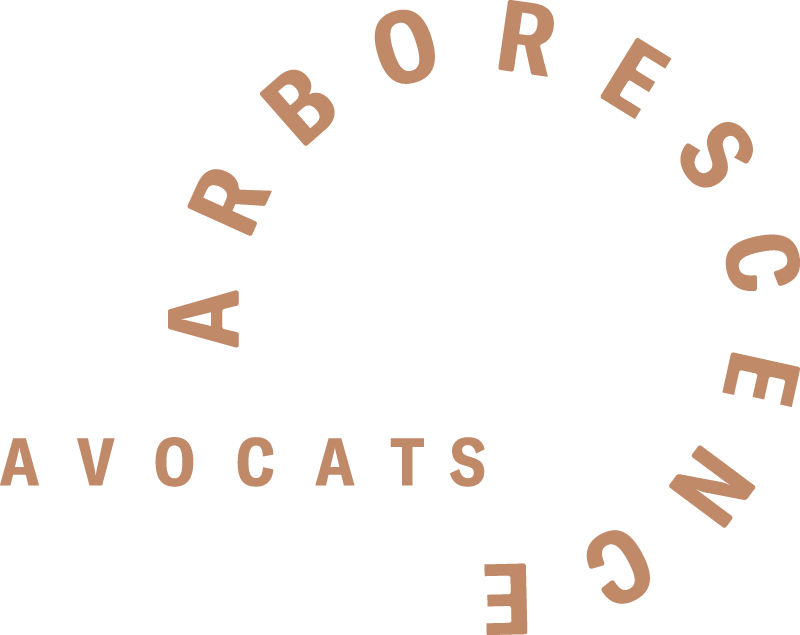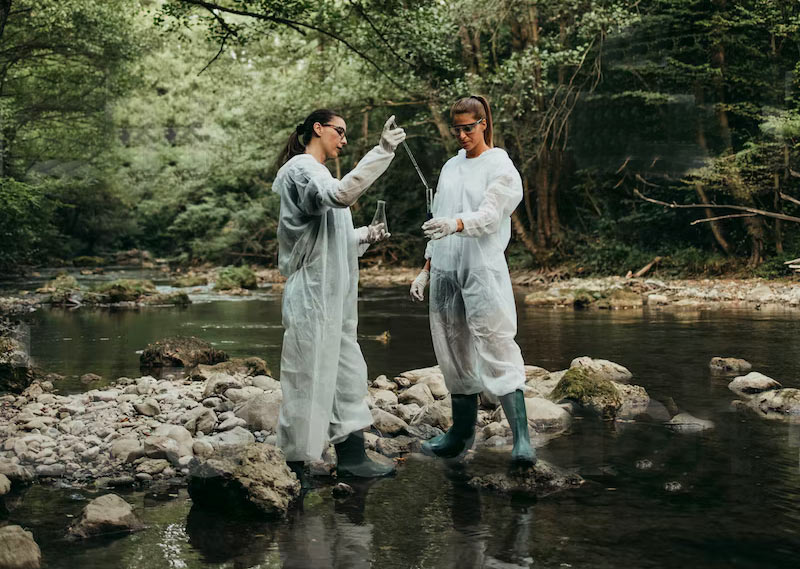Since the broadcast of the show « vert de rage » on the 12th of may 2012 leading to the disclosure of certain chemical substance (PFAS) in waters, lands and air located in « la vallée de la chimie » around Lyon, public powers and charity came into action.
As a reminder, PFAS (Per- and polyfluoroalkyl substances) are chemical substances whose properties are commonly used in several daily products (clothes, food wrapping, foam). The toxicity of the chemical component has numerous effects according to the ANSSA: they can trigger cancers, increase the cholesterol rate, and have side effects on fertility and the growth of the fetus. They are also suspected of impacting endocriniens and immunitarian systems.
On the 1st June this year, the charity named “notre affaire à tous” filed a complaint against two companies, Arkema France et Elkem Silicones France.
Those companies, specialized in the silicons and chemical products supply, are suspected to be responsible for the discovery of the chemical products mentioned above.
The charity had examined for several years different reports obtained by the regional direction for environment, planning and habitation (the French DREAL) whose mission is to coordinate and empower different policies led by the French Minister for environmental issues and, to this extent, to control the activities of those classified facilities.
Those several reports emphasized the following observation: between 2017 and 2021 more than a hundred issues regarding non-compliance matters had emerged against those two companies, in the meantime Arkema France was subjected to several prefectural decrees notably concerning formal notices, safety requests or conservatory measures.
This charity’s legal action was notably based on article L.216-13 of the French environmental code which can be qualified as an “interlocutory proceeding” in environmental criminal matters.
This case brings the opportunity to study deeper this poorly used proceeding.
This interlocutory proceeding regarding environmental criminal matters, despite its long term used, stems from article 30 of the 3rd january 1992 law about water, which provides that the French “juge d’instruction”, “le tribunal correctionnel” or the “Ministère Public” acting consequently to a request from an administrative authority or charity, could order every useful measure, encompasses the prohibition of taking advantage of the facility or work at stake.
This way of action could be effective exclusively in case of breach of articles 8,9 and 10 ‘s provisions dealing with the protection of superficial and underground waters as well as in case of breach of the provisions related to classified facilities.
This legal arsenal was then formalized in the French Environmental Code in 2000 before being reformed in 2013.
Currently, the useful measures are issued by the French liberties and detention judge, on the order of the French prosecutor acting automatically, and consequently to a request from the administrative authority, the victim or an approved association to environmental protection.
The scope of application regarding interlocutory proceedings dealing with criminal offenses to the environment was enlarged by successive and several laws and is nowadays provided by article L.216-13 of the environmental code. The useful measures can currently be issued for one year, notably when the offenders are lacking respect to legal provisions related to environmental authorisation, superficial, underground water and sea water preservation but also when dealing with the search and hydrocarbon use.
Those measures are immediately enforceable and can also encompass the suspension or prohibition of certain offenses led against the french criminal code.
The first order based on this article was held on the 5th september 2018 by the French liberties and detention judge who issued a ruling in Lyon before the civil court. This ruling was a consequence of a request made by the french “Ministere public” who was seized by the French Rhone fishing federation. This federation raised awareness about the pollution related to the french river Brévenne, a sub-tributary of the Rhône, consequently to a water treatment plant managed by the company “suez eau france” on the order of the french syndicat intercommunal des Rossandes.
The French liberties and detention judge had observed the pollution of the river and ordered the suez eau and the syndicat to put an end to any discharge in the water environment made in contravention to the legal threshold, for a six months period.
This ruling led to an appeal filed by Suez eau company and the syndicat.
By a ruling which took place on the 9th november 2018, the french investigation chamber overturned the first order.
This ruling held that, on the one hand, the responsible for the pollution was a third party company, who was not mentioned in the request issued by the french prosecutor and, on the second hand, the ruling deducted, from article L.216-13 of the french environmental code’s new provision, that the office of the french liberties and detention judge was conditioned to the observation of a criminal breach.
The Lyon Court of Appeal also held that, concerning the issue at stake, there was no “abnormality” which could lead to the existence and proof of a breach involving Suez eau or the syndicat criminal responsibility .
Furthermore, it held that the French civil court had not looked deeper into the duties accomplished by the latter to determine if they had committed a breach taking into consideration the nature of their missions, functions, capacities and the available resources they had.
The fishing federation thus filed an appeal in front of the French supreme court.
This latter took the opportunity to put aside the arguments led by the french investigation chamber which required to demonstrate a criminal offense for which the persons mentioned in the order were accountable. Thus, the single non compliance to a provision of article L.216-13 of the environmental code was sufficient.
The French court thus overturned the ruling made by the investigation chamber. According to the supreme court, “article L.216-13 of the french environmental code does not condition to a criminal breach leading to liability before court the ruling by the liberties and detention judge, when dealing with criminal investigation, of conservatory measures deemed to put an end to the pollution or to restrict the effects in an aim to preserve the environment and the health security.”
The supreme court thus judged that the conservatory measures pronounced by the liberties and detention judge, deemed to put an end to the pollution, or to restrict the effects, were not conditioned to the demonstration of a breach leading to the criminal liability of the persons involved.
This ruling made by the supreme court enables to issue an interlocutory proceeding regarding criminal environmental matters against someone who has not committed any criminal breach.
This understanding needs to be welcomed as this interlocutory proceeding regarding criminal environmental matters aims at taking effective measures in order to interrupt, with immediate effect, any disorders affecting the environment, without the demonstration of a criminal breach which often leads to a long-term investigation.
Nonetheless, this ruling seems to look in another direction than the one initially given by the French government. As a matter of fact, the French environmental minister “de la Transition écologique et solidaire” explained, on the 21st may 2019, consequently to a question raised by a deputy, “concerning criminal police, the involvement of the french liberties and detention judge regarding article L.216-13 and L.415-3 of the environmental code is only possible when a criminal offense was recorded in a criminal report.”
It is now the role of the French case-law to outline this interlocutory proceeding regarding criminal environmental matter, which is specially relevant.

